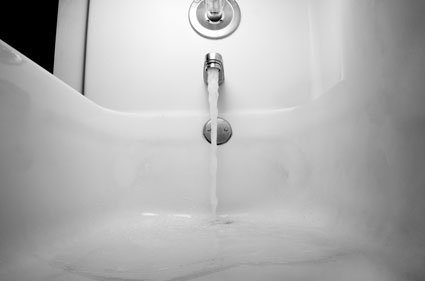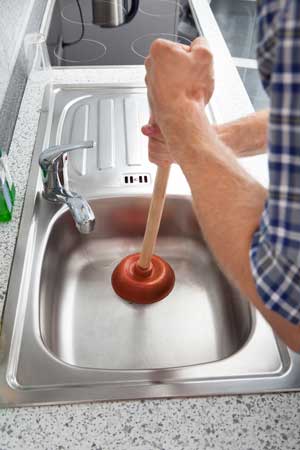Is Your Bathtub Draining Slowly?

A slow draining tub can be a major nuisance. Though a backed-up bathtub could be a sign of a larger plumbing problem, most blockages are quick fixes that you can resolve in no time. If your bathtub is draining slowly, try these home remedies:
- Clear debris: When the time comes to alleviate the clog in your slow draining tub, the first step is to remove the drain cover and clear out any hair stuck in the drain. Sometimes this step is enough to clear the drain and get your tub working again.
- Try an enzyme cleaner: Enzyme drain cleaners can be an effective way to clear clogs made of hair, mold, and other organic matter. Unlike chemical cleaners, enzyme drain cleaners only clear organic matter and do not cause damage to your plumbing system.
- Use a plumbing snake: A plumbing snake is a long wire made of metal that is designed to “snake” through the drain and cut through any clogs. You can use this tool to remove blockages that are deeper in your drains.
Preventing Future Clogs
With so much daily use, it’s no wonder why bathtub drains become clogged. Thankfully, there are a few steps you can take to prevent backups in the future. Here are some ways to prevent a clogged bathtub drain:
- Use a drain cover, and keep it clean
- Don’t let sand, dirt, or debris down the drain
- Schedule routine drain cleaning services
- Know when to call an expert for help
Call AAA Drain Cleaning LLC for Professional Help
If after attempting all of the slow draining tub home remedies, your tub is still draining slowly, don’t hesitate to call the experts at AAA Drain Cleaning LLC! Do not risk damaging your pipes by trying other, harsher home remedies as that could end up costing you greatly in the future. Slow draining home remedies should be safe, easy, and cost-effective. Call us today to get your free estimate!


